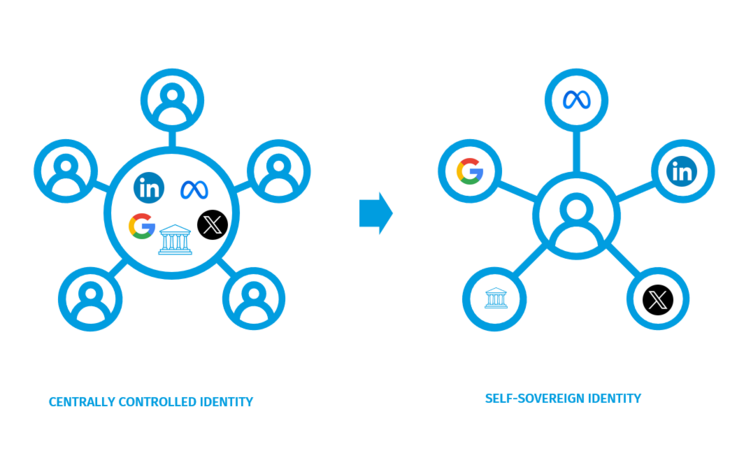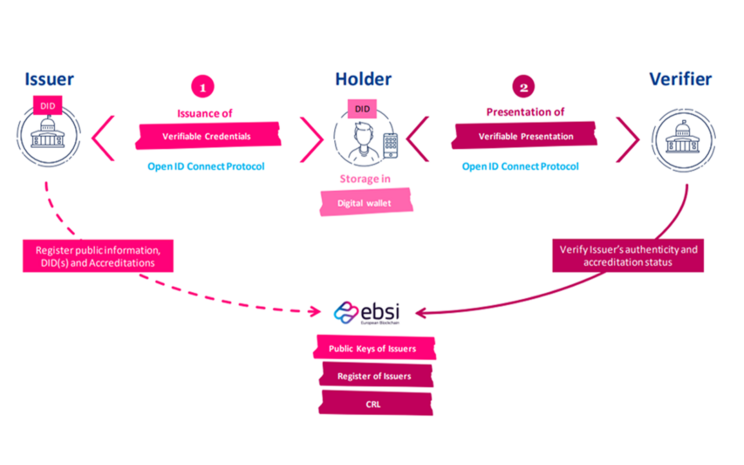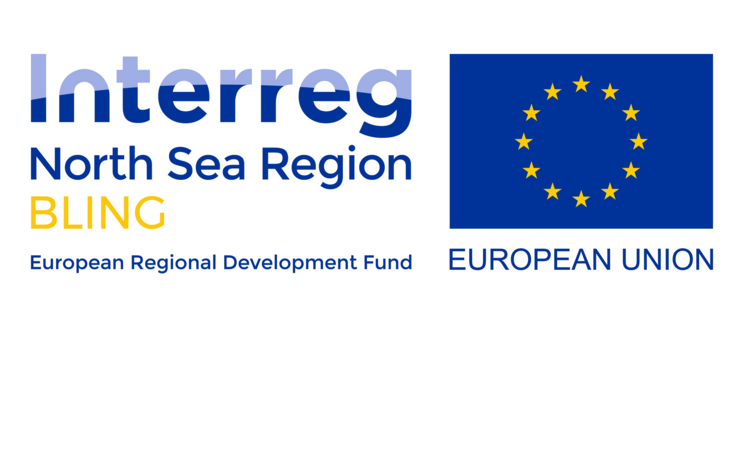Simplifying the ‘Energy loan’ application with Blockchain and Self-Sovereign Identity
Can blockchain technology improve our public services? A pilot project covering the Ghentian energy loan application suggests potential.

Aiming for a climate neutral city as from 2050, Ghent provides an ‘Energy loan’ (‘Energielening’) to households to help them afford energy-saving upgrades for their properties. However, the current application process involves many parties and is too cumbersome for citizens.
As our contribution to the Interreg project BLING (BLockchain IN Government), we were able to research the benefits of blockchain and Self-Sovereign Identity (SSI) with a proof of concept that makes applying for energy support easier, quicker, more efficient and more privacy friendly.
The developed system uses blockchain technology to manage user identity and to enable the rapid, electronic verification of authenticated data. The result was that the time and administrative burden of the application procedure can be drastically reduced.

A cumbersome application process
In the current process, a lot of communication is required between the applicant and the energy consultant who is supporting their application and gathering all the documents that are required – and the applicant often has to deliver more information than is strictly necessary. Once this is done, an administrative assistant needs to check each document, which is a time-consuming procedure.

Automating the process via the traditional way is not feasible in this case, as it comes with additional costs for legal administration and high maintenance costs of technical integrations.
Using Self-Sovereign Identity
The new Energy Loan proof of concept is built upon the concept of ‘Self-Sovereign Identity’ that is enabled by a blockchain solution. In this approach, the applicant is the owner of their own data and can choose which data may be shared and with whom.
How does it work?
In this proof of concept the use of blockchain is actually quite minimal – but the success of the whole process relies on the use of Self-Sovereign Identity, which is delivered through the blockchain. For this, the pilot is using the EU’s European Blockchain Services Infrastructure (EBSI).
Citizens (the ‘credential holders’) will be able to request valid electronic copies of their data from data providers via an e-wallet system. This will replace the paper copies of information that applicants currently provide. Citizens choose which wallet provider they wish to use.
The data providers (e.g. the Federal Public Service Finance) will issue the requested data in the form of a Verifiable Credential (VC) whose authenticity can be confirmed via the blockchain. The citizen will then be able to present these credentials to the wallet of the City of Ghent (the verifier) for processing.
"Verifiable Credentials issued to a citizen (Holder) are stored in a wallet and verified by the City"
The benefits
The combination of a Self-Sovereign Identity framework and Verifiable Credentials technology enables safe, secure, and efficient sharing of identity and loan application information among the various parties involved in the process.
More privacy
The use of Verified Credentials will provide a method to prove electronically that the citizen meets the different criteria required to be eligible for the Energy Loan without having to give any personal information to the City of Ghent (e.g. the system can verify that the applicant is a Belgian taxpayer without needing to provide their unique taxpayer reference).
More efficiency
The length of time it takes to process applications will be drastically reduced, because the citizen can ask for the data to be provided directly from the authentic source and this authenticity can be verified via the blockchain solution. This will ensure that only the correct documents/credentials can be supplied and eliminates the need to validate and cross-check the applicant’s paperwork.
Multiple parties involved
For this proof of concept, District09 partnered with many other organisations.
- the City of Ghent and the Public Social Welfare Centre Ghent (PSWC Ghent), for which District09 acts as the digital partner
- Howest as technical/academic partner, developed a portal for the citizen by City of Ghent to apply for a loan and a back-end for City of Ghent to verify the credentials which are presented during the application for the Energy Loan, and then issue energy loan credentials
- BOSA (the Federal Public Service Policy and Support), through whose portal the citizen will be issued a VerifiableID and Verifiable Credentials (e.g. issued by the FPS Economy and the FPS Finance)
- the Belgian Federal Public Service Economy and the Belgian Federal Public Service Finance
- EBSI (the European Blockchain Services Infrastructure)
- ValidatedID and Walt.id as SSI wallet technology providers
The project was a contribution to the European project BLING (Blockchain IN Government) realised with the support of Interreg North Sea Region.
Interested in seeing the pilot in practice? Watch the demo video below: (in Dutch)
The Blockchain Book
Read more about this case and other cases that were part of the BLING Interreg project in the Blockchain Book.
This book is a collection of key learnings from the BLING project on blockchain implementation in local and regional governments.
More of our projects
District09 is the ICT partner of the City of Ghent, which provides a stable, reliable and safe ICT environment for the city, its residents, its visitors, its commuters, its students and its employees.
Learn more about our projects

